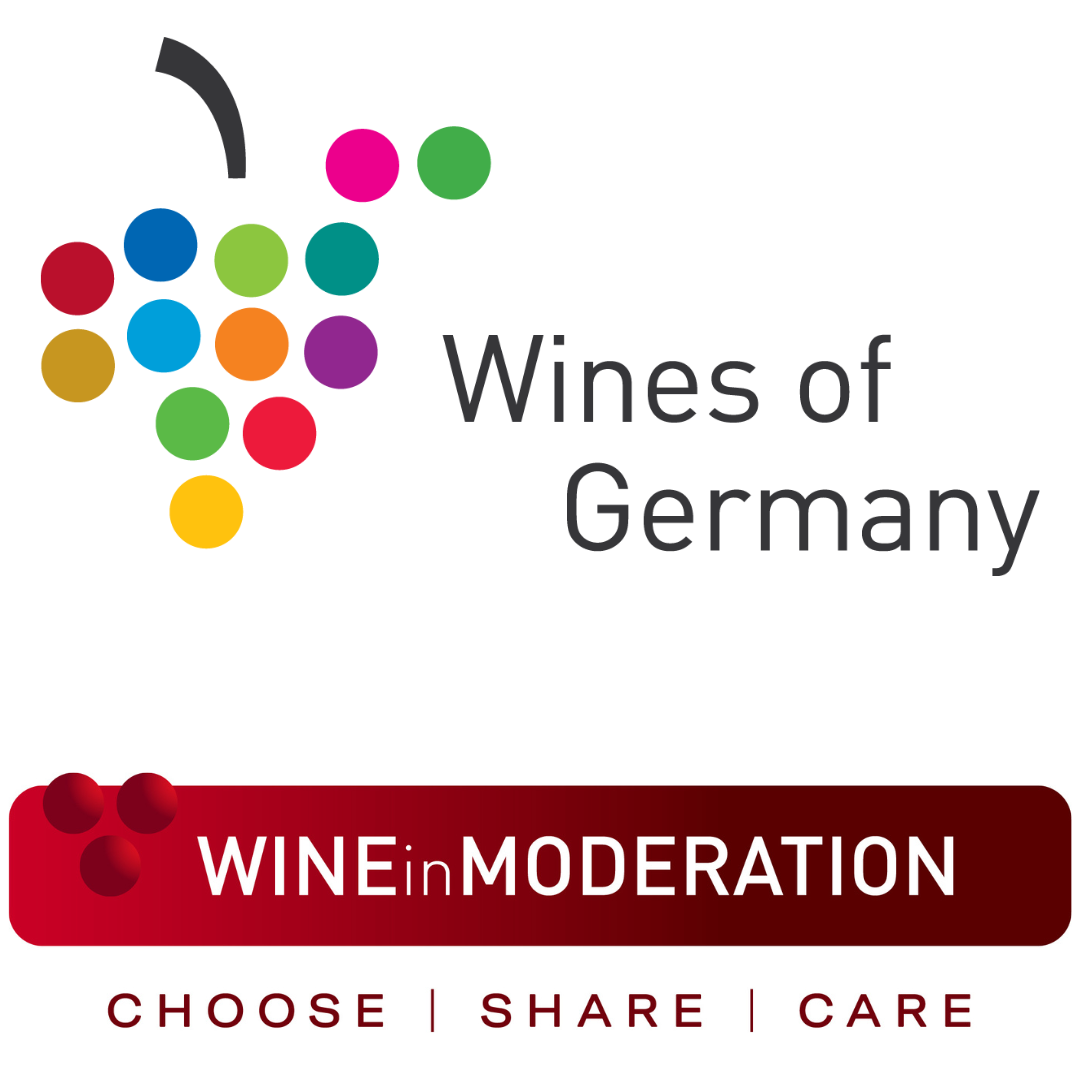Every month, ‘Whose Wine is it Anyway?’ profiles a German winemaker to give you a behind-the-vines look at the world of German wine. This month, we’re highlighting Juliane Schmitt of Schmitt Söhne. Based in the Mosel, Schmitt Söhne is a leading producer and exporter of German wines, supplying around 50 percent of all German wines in the United States.
Whose *Wine* is it Anyway? Meet Juliane Schmitt
Meet Juliane Schmitt
Producer: Schmitt Söhne Family Wines
Region: Mosel
Village: Longuich
Focus: Riesling
U.S. Importer: Delicato Family Wines
Background
The Schmitt family’s devotion to German wine took root over 200 years ago, when the Schmitt ancestors settled along the Mosel River in the small village of Longuich. Inspired by the rich winemaking culture surrounding them, the family began managing vineyards and producing wines where they settled. In 1919, Hilar Schmitt founded Schmitt Söhne with his sons (“söhne”) as a small regional winery. Across five generations, the Schmitt family has developed Schmitt Söhne Family Wines into one of Germany’s largest wine producers.
Today, Schmitt Söhne is helmed by Juliane Schmitt, the fifth generation of her family and the first woman to lead the winery. Juliane was born and raised in Longuich just like her family before her, where winemaking has always played a pivotal role in her life. Yet her parents never pressured Juliane to join the family business after graduating from university. Instead, Juliane attended the European Business School in London for her Bachelor’s and Master’s degrees, studying in Paris and Lima, far from her hometown.
It wasn’t until Juliane attended a steak and wine tasting that she truly learned the power of a great wine. After sipping through a lineup of non-surprising wine and steak pairings, Juliane was served a rich slice of Kobe beef with a Riesling Spätlese that had aged for over 10 years. This unexpected pairing helped pique her love for wine and those that her family produced back home.
From there, Juliane gained industry experience working at Miami based wine distributor Premier Beverage and Argentine winery Bodegas Salentein in Buenos Aires, as well as elsewhere in Brazil and China. After expanding her worldview at university and abroad, in 2012 Juliane returned home to the Mosel, where she eventually took on the role of CEO eight years later. Her love of exploring great food and wine and helping others experience the power of an unexpected pairing motivated Juliane’s return. From ensuring the winery is running sustainably to motivating every member of the team each day, it’s Juliane’s responsibility to help each and every employee do their job in the best possible way.
It brings me great joy to learn about and explore new wines. I am very fortunate to work in a business that helps others do the same.
— Juliane Schmitt
Wines
Schmitt Söhne is one of Germany’s largest and most successful wine exporters. In addition to owning vineyards in the Mosel, the company works primarily with a network of winegrowers beyond the Mosel. This allows Schmitt Söhne to stay in tune with the newest technologies and techniques, while never losing sight of the traditional way of producing wines that the winery was founded upon. Throughout the years, Schmitt Söhne’s policy has remained steadfast: focus on making delicious wine from quality wine grapes.
Schmitt Söhne produces wines from several of Germany’s most famous white grape varieties, chiefly Riesling. Out of Schmitt Söhne’s offerings, Juliane recommends the Schmitt Family Wines Riesling QbA. The beautiful, medium-dry Riesling is easy to drink, sparking a curiosity to explore the winery’s other Rieslings.
Schmitt Söhne exports wines to more than 15 countries, including Canada, the U.S., the U.K., the Netherlands, Scandinavia, Russia, Eastern Europe, the Baltic, and China. The winery is the leading producer of German wines sold in the U.S.
It All Lies in the Label
Schmitt Söhne crafts wines under several labels, ranging from the affordable Relax line of wines to the estate-bottled Mosel Rieslings of Thomas Schmitt Private Collection to the namesake Schmitt Söhne Family Wines brand, all of which are devoted to Riesling.
In the United States, the namesake Schmitt Söhne Qualitätswein and Pradikatswein bottlings now include descriptions of each wine style on the front label, such as “Sweet”, “Dry” and “Late Harvest”, rather than traditional German labeling terms such as Trocken, Halbtrocken, Kabinett or Spätlese. This was done to clarify the wines’ flavor profiles for American wine drinkers.
Take a glance at the wine aisle of a major supermarket in the United States, and chances are you will find one of Schmitt Söhne’s many offerings, and their wines should look familiar to both casual drinkers and German wine lovers alike.
Explore more
Visit Schmitt Söhne’s website
Stay tuned for next month’s winemaker spotlight! Follow us on Instagram, Twitter, and Facebook at @GermanWineUSA and subscribe to our newsletter to stay up to date on all things German Wine in the U.S.
